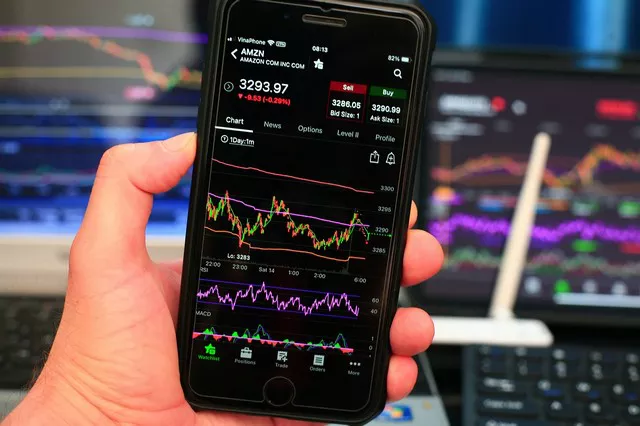In the dynamic world of finance, investors are continually seeking avenues to manage risk, enhance returns, and capitalize on market opportunities. Index futures present a powerful tool for achieving these objectives, offering exposure to broad market indices while allowing for efficient risk management and speculation. However, navigating the complexities of index futures requires a comprehensive understanding of their mechanics, applications, and associated risks. In this article, we will delve into the intricacies of index futures and provide practical insights on how investors can effectively utilize them in their investment strategies.
Understanding Index Futures
Index futures are financial contracts that enable investors to speculate on the future direction of a specific market index, such as the S&P 500, Nasdaq 100, or Dow Jones Industrial Average. These derivatives derive their value from the underlying index’s performance, reflecting changes in its price over time. Index futures contracts typically have standardized specifications, including contract size, expiration date, and tick size, facilitating liquidity and transparency in the futures markets.
Investors can use index futures for various purposes, including hedging against portfolio risk, gaining exposure to broad market trends, and executing trading strategies based on market expectations. By trading index futures, investors can achieve diversification benefits and access different asset classes without the need for direct ownership of individual securities.
Hedging Portfolio Risk
One of the primary uses of index futures is to hedge against portfolio risk. Investors can use index futures contracts to protect their investment portfolios from adverse market movements by establishing offsetting positions in futures contracts. For example, if an investor holds a diversified equity portfolio and expects a market downturn, they can sell index futures contracts to hedge against potential losses.
By taking a short position in index futures, investors can profit from declining market prices, offsetting losses incurred in their equity holdings. This hedging strategy helps mitigate downside risk and provides a level of protection against adverse market movements, enhancing portfolio stability and resilience in volatile market conditions.
See Also: Where can I trade sugar futures?
Gaining Exposure to Market Trends
Index futures offer investors a convenient and cost-effective way to gain exposure to broad market trends and capitalize on market opportunities. Instead of investing directly in individual stocks or exchange-traded funds (ETFs), investors can trade index futures contracts to participate in the overall performance of the underlying market index.
For instance, if an investor is bullish on the technology sector and expects the Nasdaq 100 index to rise, they can buy Nasdaq 100 index futures contracts to profit from potential price appreciation. By taking a long position in index futures, investors can leverage their capital and amplify returns based on their market outlook and investment thesis.
Executing Trading Strategies
Index futures serve as a versatile instrument for implementing various trading strategies based on market expectations and technical analysis. Traders can employ index futures contracts to capitalize on short-term price movements, exploit arbitrage opportunities, or implement sophisticated trading strategies, such as spread trading and options strategies.
For example, traders may engage in index arbitrage, where they simultaneously buy and sell index futures contracts and their underlying stocks to profit from price disparities between the futures and cash markets. Similarly, traders may use index futures options to construct complex options strategies, such as straddles, strangles, and butterflies, to capitalize on volatility or hedge existing positions.
Managing Futures Contracts
As with any financial instrument, effectively managing index futures contracts requires careful attention to risk management, position sizing, and portfolio diversification. Investors should conduct thorough research, monitor market developments, and implement disciplined trading practices to optimize their futures trading strategies.
Risk Management: Implementing risk management techniques, such as stop-loss orders and position limits, can help investors limit potential losses and protect their capital in adverse market conditions. By setting predefined exit points and adhering to risk management rules, investors can mitigate the impact of unfavorable market movements on their futures positions.
Position Sizing: Properly sizing futures positions is essential for managing risk and maximizing returns. Investors should consider factors such as account size, risk tolerance, and market volatility when determining the appropriate position size for their futures trades. By diversifying across multiple contracts and asset classes, investors can spread risk and reduce portfolio volatility.
Portfolio Diversification: Maintaining a diversified futures portfolio is critical for minimizing concentration risk and optimizing risk-adjusted returns. Investors should consider incorporating a mix of index futures contracts across different asset classes, regions, and sectors to achieve balanced exposure and capitalize on diverse market opportunities.
Conclusion
In conclusion, index futures offer investors a powerful tool for managing risk, gaining exposure to market trends, and executing trading strategies in the financial markets. By understanding the mechanics of index futures, investors can leverage these derivatives to hedge portfolio risk, capitalize on market opportunities, and enhance overall portfolio performance.
Whether hedging against adverse market movements, gaining exposure to broad market trends, or implementing trading strategies, index futures provide investors with flexibility, liquidity, and efficiency in achieving their investment objectives. By incorporating index futures into their investment arsenal and adhering to sound risk management principles, investors can navigate the complexities of the futures markets and unlock new avenues for portfolio growth and diversification.

